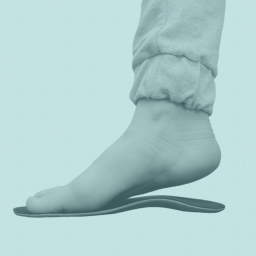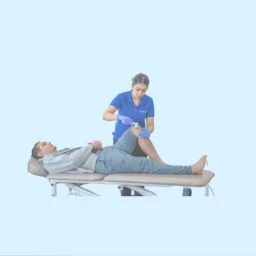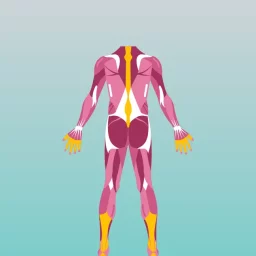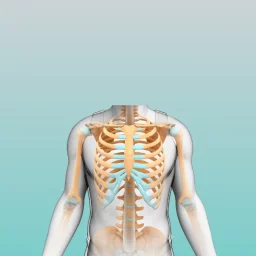Just as a strong spine and good posture are essential to healthy mobility, a painful spine can eliminate it. Mobility is more than just our ability to walk. Mobility is our independence and quality of life.
What is spinal mobility?
Mobility is our ability to move comfortably. It’s not just about how well we can participate in exercise and physical activity, it’s also about how easily we perform simple daily tasks, like bathing, daily chores, and cooking dinner. You might not realize it, but our body moves a lot during the day, and it can be easy to take that for granted.
The spine is a crucial part of the human body’s musculoskeletal (MSK) system. It consists of a series of vertebrae that protect the spinal cord and provide structural support for the upper body. As we age, our mobility may decline, but aging alone doesn’t eliminate our mobility. Mobility requires strength, balance, stamina, and coordination; all things we can condition and improve to keep us moving throughout our lives.
How does mobility contribute to a healthy spine?
Flexibility: Mobility refers to the ability of the spine to move freely through its entire range of motion. A flexible spine is less prone to injury and discomfort. Stretching and flexibility exercises help maintain this range of motion, which is vital for daily activities.
Posture: Proper posture is essential for spine health. Mobility in the spine allows for adjustments in posture to distribute weight and pressure evenly on the spinal discs and surrounding structures. Poor posture can lead to strain and long-term issues.
Joint Health: The spine consists of many joints, including facet joints between the vertebrae. These joints require movement to stay healthy. Regular mobility exercises and adjustments can help lubricate the joints and prevent stiffness or degeneration.
Muscle Support: The muscles surrounding the spine play a crucial role in supporting and stabilizing it. Maintaining mobility in the spine helps ensure that these muscles are functioning optimally, reducing the risk of muscle imbalances and pain.
Pain Prevention: A lack of mobility in the spine can lead to conditions such as herniated discs, sciatica, and general back pain. Gentle, controlled movement through activities like yoga, Pilates, and regular exercise can help prevent and alleviate these issues.
Spinal Health: Adequate mobility in the spine ensures that the vertebral discs receive proper nutrition and hydration. These discs act as shock absorbers and provide cushioning between the vertebrae. Maintaining mobility helps prevent disc degeneration and related problems.
Range of Motion: A healthy spine with good mobility allows individuals to maintain a wide range of motion in their daily lives. This is particularly important for activities like bending, twisting, reaching, and lifting without causing strain or injury.
To maintain mobility and independence while promoting a healthy spine, individuals should consider incorporating the following into their lifestyle:
Regular exercise: Engaging in physical activities that promote spine mobility, such as yoga, stretching, and core-strengthening exercises.
Ergonomic workspaces: Proper ergonomics is like a solid foundation for preventing workplace injuries. It involves optimizing your workspace to minimize strain on your body. Setting up workstations that encourage good posture minimizes strain on the spine.
Proper lifting techniques: Learning how to lift objects safely, using the legs rather than the back to avoid unnecessary stress on the spine.
Regular spinal check-ups: Visiting your chiropractor for regular adjustments can keep you mobile and is also a great place to get guidance on spinal health.
Avoiding excessive sitting: Taking breaks from sitting for prolonged periods and incorporating movement into daily routines.
Mobility is key to an independent life and ensures a healthy spine. A flexible and well-supported spine contributes to overall well-being, reduces the risk of injury and discomfort, and allows individuals to enjoy a full range of motion in their daily activities.
If you think you are in need of MSK care and are not sure where to start, call the CURAVITA Health Group today to book a comprehensive assessment. Our model of patient-centred care in a collaborative multi-disciplinary environment will ensure you get the right care, at the right time and in the right place.

⭐️⭐️⭐️⭐️⭐️ on GOOGLE
My experience with this clinic has been exceptional. They have been careful, thorough, knowledgeable, extremely professional, very aware and sensitive to my condition, and engaged with concern for my well being and as a valued person beyond just a client. I had a very debilitating pinched nerve between two vertebrae in my lower back that she was able to relieve almost instantly – and then guide me through a treatment process that has left me feeling free-er, looser and more mobile than even previous to the condition showing up. I would highly, and have highly recommended them to others. I am so pleased to have them in my corner.
-RS

⭐️⭐️⭐️⭐️⭐️ on GOOGLE
After years of back pain and not knowing what was wrong i stumbled across this clinic based on their amazing reviews. After the first visit I was so impressed with how knowledgeable and thorough their treatment plan and action was. They are amazing, kind, professional and I am beyond grateful to have found them. My back pain is going away and I am able to run after years of not running because of shin splints caused by my back. Massages and Physio never worked but after 3 sessions with the doctor, I was already feeling so much better. Will be recommending them to anyone and everyone. Very thankful to have found who cares about my back issues like it’s their own.
-LW

⭐️⭐️⭐️⭐️⭐️ on GOOGLE
This doctor is an AMAZING Chiro! They are very thorough in their initial assessment and makes sure everything is clear. They are an incredibly kind, professional, and knowledgeable chiropractor – I’d definitely recommend! They do great adjustments and is always on time or even a bit early. The clinic itself is clean and modern, the receptionists are friendly and there is quite a bit of appointment availability. So far I’m really happy with this clinic!
-JB

⭐️⭐️⭐️⭐️⭐️ +1 on Google Reviews
From the front desk staff to the chiropractor experts, CURAVITA is 6 Star quality!
Being a first-year university student with a long history of neck and head pain and constant headaches, I was skeptical if any treatment would work in restoring a pain-free self. Dr. H and the rest of the staff took the time to know me and the problems I am facing. They set out a clear, measurable and results-based pathway to getting myself back into great health. They provided help and information beyond the appointments that would assist in my goals and overall health.
The staff are friendly, approachable and understanding. Dr. H is an outstanding Chiropractor who always puts the patient and their journey first. Simply put, CURAVITA offers the very best in this industry.
-AC

⭐️⭐️⭐️⭐️⭐️ on Goggle Reviews
We stumbled across Curavita while looking for massage and chiropractor places in Lowertown area. We’ve been very happy with Dr H’s chiropractic services. She diagnosed my knee pain and gave me a fantastic care plan. She’s also very knowledgeable about the city and gives great tidbits and recommendations.
Curavita has a handy online portal to book subsequent appointments. They are quick to respond over email or phone in case any changes to upcoming appointments are required. They also support sending receipts via email which makes the reimbursement process a breeze. I would definitely recommend Curavita!
-C

⭐️⭐️⭐️⭐️⭐️ on Google Reviews
The chiropractic and massage therapy I have received at the CURAVITA has helped me immensely with different health issues as they have arisen. The staff is warm and attentive, the atmosphere is inviting and healing, and the care is effective and comprehensive. The clinic goes above and beyond to explain the types of care they provide through educative media and by therapists themselves. You are in good hands when you are at the CURAVITA Byward.
-SY

⭐️⭐️⭐️⭐️⭐️ on Google Reviews
Dr. B is the absolute best chiropractor! After multiple concussions and dealing with persistent back pain and headaches, I began seeing Dr. B. The chiropractic treatment I have received from Dr. B has made a life-changing difference for me. I highly recommend them and the clinic to anyone! Front desk administrators are also fantastic and friendly, especially Valerie & Mariana, they always make booking seamless and are quick to respond to all my questions and concerns!
-SL

⭐️⭐️⭐️⭐️⭐️ on GOOGLE
Dr. H is so attentive and generous with her time and knowledge. My pain and mobility improved considerably in a short time. My family now all see her too. Highly recommend!
-ES

⭐️⭐️⭐️⭐️⭐️ on GOOGLE
I’ve had both physiotherapy and chiropractic care here.
SA is an incredible physiotherapist. I sprained my ankle pretty bad, and decided to get physio. SA worked with me to initially get my flexibility back and then worked on strengthening exercises. I was back to playing sports in no time. She is very knowledgeable and takes her time to ensure you understand the exercises. I highly recommend her for physiotherapy.
Dr. H is exceptionally proficient in chiropractic care. They are entirely focused on the wellbeing and improvement of each patient. I look forward to every appointment. If you are looking for someone that understands the discomfort or pain you may be feeling and has the knowledge and experience to assist you, look no further.
Do yourself a favour and visit Curavita. Dr. H, SA and staff are truly wonderful. Thank you for all your hard work and effort!
-TM

⭐️⭐️⭐️⭐️⭐️ on GOOGLE
Awesome place! I had pain in my hip and neck and saw the great reviews on Google. Never did physio before so decided to give it a try. I worked with Dr. R and she was amazing. Took great care of me and was very thorough as a chiropractor. I highly recommend her for any issues you may have with back, neck or hip pain. Thanks so much Dr. R.
-CT

⭐️⭐️⭐️⭐️⭐️ on GOOGLE
“I’ve been a patient of Dr. B’s for many years, and even after relocating, I couldn’t find a chiropractor who matched her level of expertise. So, I travel back to Ottawa just to continue receiving Dr. B’s exceptional service.”
-PA

⭐️⭐️⭐️⭐️⭐️ on GOOGLE
“Outstanding results treating my shoulder. My shoulder had been extremely painful for several months and I had been anticipating surgery would be required. My chiropractic treatments got the shoulder moving and am now close to 100 percent recovered. It took time but am extremely satisfied with the outcome.”
-JB

⭐️⭐️⭐️⭐️⭐️ on GOOGLE
I’ve been a casual massage therapy client at CURAVITA for a few years but recently visited the Glebe clinic for help with a chronic plantar fasciitis problem. I received treatment from the physiotherapist and the chiropractor, and have seen so much improvement and pain relief through these treatments. I am now able to walk pain-free, am beginning to scale up my workouts at the gym so that I can get back to the volume of exercise I am used to and, in general, because of the chiropractic care have noticed huge improvements in how my body feels overall.
-CW

⭐️⭐️⭐️⭐️⭐️ on GOOGLE
I found Curavita Byward after searching for physiotherapy providers in lowertown, and im so glad i did! I was also very fortunate to be assigned with my physiotherapist and the progress has been visible very fast and she’s very encouraging and knowledgeable and kind. I also started seeing the chiropractor for chiro after a recommendation of the physiotherapist and overall im very satisfied with the treatement plan, the adjustments show effect almost immediately and im happy with the approach in general. 5/5
-DL

⭐️⭐️⭐️⭐️⭐️ on GOOGLE
I was hesitant to try chiropractic treatment but after meeting with the chiropractor and her team, I was curious enough about the potential benefits to my overall health to try. I’m glad I did – it has improved my form and resolved recurrent headaches and numbness in my hands. This place is clean, efficient and the staff is so very friendly. I recently started massage therapy here too and will make that a regular part of my self-care routine. Highly recommend!
-IRN

My experience at CURAVITA has been life altering for me. I spent many years hearing reasons out of my control were at play and to never expect any better. I felt welcomed and understood, I also felt things were explained to me and I was spoken to as being a part of my care team as opposed to being spoken at about what was in my care plan. I felt they were realistic with me and instead of here’s the information now go, Dr. R sat patiently and made sure I digested the information okay. The optimism mixed with being realistic really helped me when I had a bit of a setback. Dr. R made me feel like a valued client and the reception staff are extremely welcoming. The whole environment is very relaxing and lowkey. This is the first time I can remember that my neck and back aren’t in horrible pain, and my headaches are finally relenting some. I’ve been able to reduce some medications that I needed for chronic pain before. I had an extremely positive experience and the skepticism I came in with was welcomed and I felt I was given the space to check things out for myself instead of being pressured into anything.
-A

⭐️⭐️⭐️⭐️⭐️ on GOOGLE
Ever since I was a kid, I have always had a fear of chiropractors. The thought of having someone put pressure on my body to crack my bones terrified then and continued to present day.
After hurting my back and in dire pain, a co-worker recommended the staff at Curavita. I immediately declined yet she assured me that chiropractors have changed the way they practice and to trust her.
I made an appointment and even from chatting with the receptionist, I could feel their loving warmth and support. I went to my first appointment and my whole idea of chiropractic care has changed. Not only is the chiropractor a friendly and caring individual, she is supportive and takes the time to explains everything. I told her of my fear and she guided me through each step putting my mind at ease. My outlook on going to see a chiropractor has changed for the better. Thank you Dr. H you have made me a chiropractic believer.
-CB

⭐️⭐️⭐️⭐️⭐️ on GOOGLE
I’ve had seemingly irremediable lower back problems for years thanks to a long history of sport related injuries. I had always been skeptical of chiropractic care as a solution and generally opted for a combination of exercise, athletic therapy, physiotherapy, and massage therapy instead. A couple of months ago I decided to take advantage of CURAVITA’s “Discover Chiropractic” week and met Dr. B who took me through an initial assessment, addressing any concerns or doubts that I had while taking the time to explain to me what I might expect to see in terms of quantifiable progress after a course of chiropractic care. I learned more about my body and how it functions in that first session than I had in years, which gave me hope. After a couple of months of a couple of visits with Dr. B each week, my back is now more mobile and functional than it has been in years. I have seen a considerable difference in my ability to consistently perform at a high level in sport without feeling held back by constant injury. It’s nice to wake up feeling my age again, instead of twice that. I now consider chiropractic care to have been a missing piece of the puzzle in my healthcare practices. Over the past few years I have received treatment from ~90% of the practitioners at CURAVITA Glebe. Each member of the team is consistently kind, caring, and positive – from reception to massage, to chiro. I look forward to every visit knowing that I’ll leave feeling better than when I walked in!
-EV

⭐️⭐️⭐️⭐️⭐️ on GOOGLE
Have been receiving chiropractic care from the chiropractor at Curavita for a couple weeks now, and it’s been a huge help. The doctor is always professional and takes great care to explain and to provide advice. The Glebe location is well laid out and the receptionists are warm and welcoming. Scheduling has never been an issue as the availability has allowed me to plan around my full-time job.
-M

⭐️⭐️⭐️⭐️⭐️ on GOOGLE
The chiropractor and her staff are super friendly. The chiropractor is very professional and knowledgeable. I always feel so much better after an adjustment. She gave me many great tips for working on the weak muscles that cause pain. She is not just helping me get rid of the pain but teaching me how to prevent the pain in the future with exercise. I recommend her to anyone looking to get chiropractic treatments done! Keep up the excellent work!
-AML

⭐️⭐️⭐️⭐️⭐️ on GOOGLE
A relaxing environment and the most welcoming staff! I went to see the chiropractor for ongoing headaches caused by neck and back pain. She takes the time to educate and explain the symptoms you’re experiencing, allowing you to make informed decisions about your care. She works with you to create a progressive care plan that meets your needs and equips you with the tools to achieve and maintain your goals. Her extensive knowledge, attention to detail, and willingness to communicate have created a fantastic experience for me. I have enjoyed the care I’ve received and highly recommend her to anyone looking to get chiropractic care.
-JK

⭐️⭐️⭐️⭐️⭐️ on GOOGLE
I have been seeing the chiropractor for the past 2 months and I truly only have good things to say. I seeked out chiropractic care because of recurring migraines & neck pain and I’ve seen such a big improvement since I’ve started.
I was skeptical in the beggining as I have never been to a chiropractor but the chiropractor really guided me through the whole process and made it so easy for me to understand. She takes the time to explain what she is doing and how it will help my problem areas. It has truly been a night and day difference for my migraines and overall posture/neck pain and I’m super grateful! She also works to strengthen these muscles for long term benefits. Super friendly and caring environment overall.
I highly recommend!
-ML

⭐️⭐️⭐️⭐️⭐️ on GOOGLE
We went to Dr H with a chronic neck and back pain and history from India. She was so kind and professional in the approach and suggested sittings as per the protocol. Behold, in 3 months there was a drastic change in the condition and we felt Dr H was a blessing in the guise of a Chiropractor.
We realized during the course of the sittings that her knowledge on the subject is profound and her techniques are top notch.
It felt so good to be close to normalcy and continue with all the activities like 5 years before.
I just don’t have enough superlatives in my inventory to appreciate her.
If I were to opine, she is the first stop for ailments related to the neck and back and am sure could land up as the last stop as well.
-RG

⭐️⭐️⭐️⭐️⭐️ on GOOGLE
Dr. H is an excellent chiropractor! I appreciate so much her professionalism and kindness. She greatly helped me ease my jaw and neck pain, improve my posture and have more flexibility. I made the best choice coming to Curavita and being treated by Dr. H!
The staff is very welcoming and friendly
I highly recommend!
-SN

⭐️⭐️⭐️⭐️⭐️ on GOOGLE
Very good clinic (Reception – Cleanliness – Equipment) with warm and very professional staff like Dr. R.
I highly recommend this CuraVita clinic.
-C


⭐️⭐️⭐️⭐️⭐️ on GOOGLE
After 5 years of chronic back pain following an injury, I tried multiple chiropractors, physios, and acupuncturists in Ottawa. While on my honeymoon in 2022, my pain worsened, prompting me at 2 a.m., to again, Google search for help. I found Dr. H, who had excellent reviews. Despite my skepticism due to previous experiences with chiropractors, I followed her recommended treatment plan of three times a week for a month, then twice a week for a month, and finally once weekly. I come in for maintenance, once a month. Over a year later, I’m still pain-free. You’re a star!
-MJ

⭐️⭐️⭐️⭐️⭐️ +1 on GOOGLE
I came to Dr. R after months of Physio and seeing only very minor improvements in my shoulder impingement. After just a few adjustments I was able to return to my normal activities. Would give 6 stars out of 5 if I could as the value of being able to live pain free is priceless. Thanks!
-AA

⭐️⭐️⭐️⭐️⭐️ on GOOGLE
Thank you Dr. C. I am finally recovering from neck pain after years. I don’t trust anybody else with my body.
-I

⭐️⭐️⭐️⭐️⭐️ on GOOGLE
I love this clinic, the welcome is warm, the staff is kind and helpful. I greatly appreciate the professionalism and kindness of Dr. R. I highly recommend.
-HS

⭐️⭐️⭐️⭐️⭐️ on GOOGLE
Dr. C is an AMAZING Chiro! She is very thorough in her initial assessment and makes sure everything is clear. She is an incredibly kind, professional, and knowledgeable chiropractor – I’d definitely recommend! She does great adjustments and is always on time or even a bit early. The clinic itself is clean and modern, the receptionists are friendly and there is quite a bit of appointment availability. So far I’m really happy with this clinic!
-JB

⭐️⭐️⭐️⭐️⭐️ on GOOGLE
Dr. C is AMAZING. She is professional, caring, attentive, thorough, contentious and welcoming. Every appointment with her has been a joy. I always look forward to seeing her. I suffered from sharp knee pain after 5 minutes (sometimes less) whenever I went swimming, which was incredibly devastating to me since swimming is a huge part of my life. I was worried that I would have to have knee surgery to relieve the pain because I didn’t want to live this way. But after a thorough examination, x-rays and spinal scan, she discovered that I suffered from a curvature of the spine, osteoarthritis in my neck and a tilted pelvis resulting from one leg appearing to being longer than the other. With my permission, she communicated with my Personal Trainer, so that he could design my training directly to the doctor’s specifications. After only 12 treatments (3 times a week for 4 weeks) I was finally able to swim to my heart’s content – pain-FREE!! After the 12 treatments, I had an evaluation and spinal scan, which showed that the stress on my spine had been reduced by 40%!! I am SO THANKFUL to Dr. C for relieving my pain and allowing me to enjoy a pain-free life. I look forward to a continuing my swimming without having to worry about the pain. Thank you Dr. C 🙂
-J

⭐️⭐️⭐️⭐️⭐️ on GOOGLE
The chiropractor is fantastic!! I felt extremely comfortable with her and trust her with my care. everyone there is welcoming and know how to help. Curavita is wonderful all around. The massage therapist also helped immensely with a great massage. i look forward to continuing my healing journey with Curavita.
-MC
















